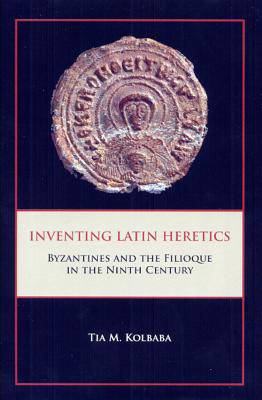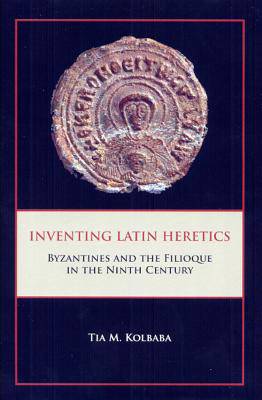
- Afhalen na 1 uur in een winkel met voorraad
- Gratis thuislevering in België vanaf € 30
- Ruim aanbod met 7 miljoen producten
- Afhalen na 1 uur in een winkel met voorraad
- Gratis thuislevering in België vanaf € 30
- Ruim aanbod met 7 miljoen producten
Zoeken
€ 23,95
+ 47 punten
Omschrijving
Focusing on the ninth-century beginnings of Byzantine writings against the Latin addition of the Filioque to the creed, Inventing Latin Heretics illuminates several aspects of Byzantine thought-their self-definition, their theology, their uniquely constituted state-based both on what they had to say for themselves and on modern approaches to the study of group identity, religious conflict, and sociology of knowledge. The book introduces the concept of heresiology in general, defining terms, summarizing a vast body of secondary scholarship, and bringing the history of Byzantine antiheretical texts down to the ninth century. It discusses relations between Latin and Greek Christians before and into the time of Photios, as well as his knowledge of Latin customs. The next chapters examine the transmission, form, and contents of the three anti-Filioque texts attributed to Photios and other texts that exemplify what ninth-century Byzantines were saying about Latin errors, raising textual questions that cannot be ignored and ultimately providing a window onto Byzantine mentalities.
Specificaties
Betrokkenen
- Auteur(s):
- Uitgeverij:
Inhoud
- Aantal bladzijden:
- 214
- Taal:
- Engels
- Reeks:
Eigenschappen
- Productcode (EAN):
- 9781580441339
- Verschijningsdatum:
- 1/12/2008
- Uitvoering:
- Hardcover
- Formaat:
- Genaaid
- Afmetingen:
- 155 mm x 234 mm
- Gewicht:
- 734 g

Alleen bij Standaard Boekhandel
+ 47 punten op je klantenkaart van Standaard Boekhandel
Beoordelingen
We publiceren alleen reviews die voldoen aan de voorwaarden voor reviews. Bekijk onze voorwaarden voor reviews.











